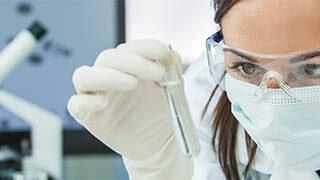
New advice to reduce risk of stillbirth
Parents want to know why their baby has died, whether it might happen again if they try for another baby and what they can do to avoid further stillbirth.
Professor Alexander Heazell specialises in identifying things in day-to-day life that increase expectant mothers’ chances of having a stillborn baby, explaining: “These are what we call modifiable risk factors – things that women have the power to alter, either alone or with medical help.”
Action, along with partners Cure Kids, Sands and Tommy’s, supported a three year study led by Professor Heazell looking specifically at mothers’ sleep positions in late pregnancy in relation to the risk of stillbirth. This was called the Midlands and North of England Stillbirth Study, known as MiNESS.
Between 2013 and 2017, the MiNESS team worked with 291 women who had experienced a stillbirth and 733 women who had a live birth. The study confirmed findings from earlier studies in New Zealand and Australia that, in the third trimester (after 28 weeks of pregnancy), pregnant women who go to sleep on their back are more likely to have a stillbirth.
After the results were published in the British Journal of Obstetrics and Gynaecology (BJOG) in November 2017, a public health campaign was launched advising women to go to sleep on their side, rather than on their back, in the third trimester of pregnancy. The ‘Sleep on Side’ campaign received wide media coverage. It is estimated that, if all pregnant women in the UK went to sleep on their side in the third trimester, there would be a 3.7% decrease in stillbirth, saving around 130 babies’ lives a year.
This new advice has the potential to save up to 100,000 babies a year internationally, sparing parents from the heartache of stillbirth.
As a charity dedicated to saving and changing vulnerable babies’ lives, Action is proud to have funded this £191,080 study, which has led to practical advice for pregnant women, supported by NHS England, being made widely available to help prevent stillbirth.

